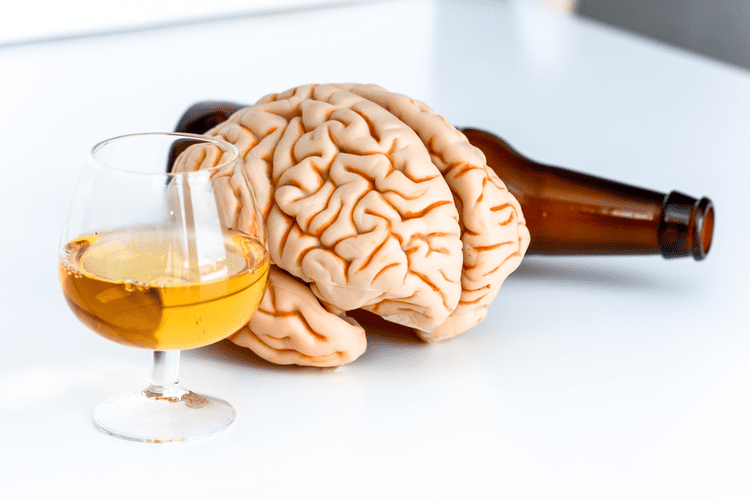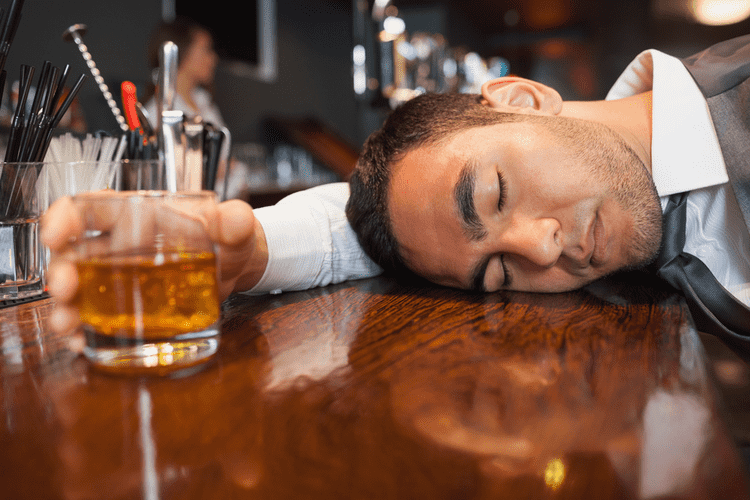Drunkenness can also cause people to behave impulsively or say things they wouldn’t normally say. As a result, people often flush or blush when they are intoxicated. Some people also find that their senses are heightened when they are drunk, causing them to see, hear, smell, taste, and feel things more intensely. Of course, these effects vary depending on how much alcohol someone has consumed.

Signs and Symptoms of Different Levels of Intoxication
And it’s a rare party, cookout, or get-together that doesn’t include wine or beer. Our society tends to normalize and even encourage alcohol, which makes it difficult to avoid. Ethyl alcohol is a naturally occurring chemical that’s secreted by microbes called yeast. The chemical has a sterilizing effect on bacteria, which is why the yeast produces it in grain and other foods. Under the right conditions, humans can get the yeast to secrete up to an 8% solution of alcohol in mash.

Alcohol’s effects on risk-taking
- Understanding the science behind alcohol’s effects on the brain can empower individuals to make more informed decisions about their drinking habits.
- The stages range from sobriety to potential death, with each stage characterized by specific emotional and physical symptoms.
- Metabolism also influences intoxication levels as it affects how quickly the body processes and eliminates alcohol.
- The study’s finding, that it triggers the release of endorphins, is simple and logical — but it has not been shown in humans until now.
- The interplay between these factors can greatly influence how alcohol affects our mood and perceived well-being.
Plus, we’re always introducing new features to optimize your in-app experience. We recently launched our in-app chatbot, Melody, powered by the world’s most powerful AI technology. Melody is here to help as you Alcoholics Anonymous adjust to a life with less (or no) alcohol.
Your liver
- Alcohol starts entering your bloodstream through small blood vessels in your mouth and tongue before traveling through your digestive system.
- In addition to physical symptoms, being drunk can lead to a range of emotional and psychological effects.
- For a deeper understanding of how alcohol affects the brain, you can read this article.
There is also a risk of becoming reliant on alcohol to manage anxiety, leading to other physical and mental health problems. When alcohol enters the bloodstream, it travels to the brain, where it affects neurotransmitters—chemical messengers that transmit signals between nerve cells. The primary neurotransmitters influenced by alcohol are gamma-aminobutyric acid (GABA) and https://mahirdigital.com/choose-the-correct-cycle-of-addiction-discovering-2/ glutamate. Alcohol enhances the effects of GABA, which has inhibitory properties, leading to feelings of relaxation and sedation.
- The results of the study could also help researchers design a better drug to treat alcohol addiction.
- For more detailed information on how alcohol makes you drunk, check out this article.
- Drinking in a social setting can increase feelings of closeness and positivity, as mentioned above.
- People with alcohol use disorder may not feel drunk at all, even when their BAC is very high.

While some find it fun to get a buzz from drinking alcohol from time to time, consuming too much of it can be downright dangerous. Usually a man will start to feel tipsy after consuming 2 to 3 alcoholic drinks in an hour. A woman will feel tipsy after consuming 1 to 2 alcoholic drinks in an hour. It can make sexual activity after consuming large amounts of alcohol not feel as pleasurable as it would otherwise. At low doses, alcohol may lower inhibitions and produce feelings of euphoria, which may lead some people to be more open or receptive to sexual activity. Ultimately, the pursuit of genuine, lasting happiness involves more than just the temporary highs provided by alcohol.
Cognitive and Emotional Signs and Symptoms
First-time drinking might seem intriguing or overwhelming, but it’s not something to take lightly. While we won’t be able to predict exactly what we’ll feel when we drink for the first time, having a general idea of alcohol’s effects will help us navigate the experience more mindfully and safely. If we’re making the decision to take that first drink, remember that it’s not all it’s cracked up to be, and the does being drunk feel good downsides outweigh any benefit. We can start to feel alcohol’s effects in as little as 10 minutes after drinking.
“This is something that we’ve speculated about for 30 years, based on animal studies, but haven’t observed in humans until now,” said lead author Jennifer Mitchell in a press release. “It provides the first direct evidence of how alcohol makes people feel good.” In the brain, endorphins work like opioids (morphine, for example), so by administering a drug that binds to opioid receptors, the team could determine exactly where they were located in the brain. The drug was radioactively tagged so that it would light up on a PET scan, and the receptor “map” could be made. Researchers have long believed that triggering an endorphin release in the brain explained why alcohol makes us feel as good as it does, but it hasn’t been shown in humans until now. Getting consent before and during sexual activity is extremely important when mixing alcohol and sex.
It’s crucial to be aware of your own limits and to avoid exceeding them. The rate at which alcohol is consumed can significantly impact intoxication levels. When alcohol is consumed rapidly, the body may not have enough time to metabolize it effectively, leading to a higher BAC and a more pronounced level of intoxication.

0 Comments